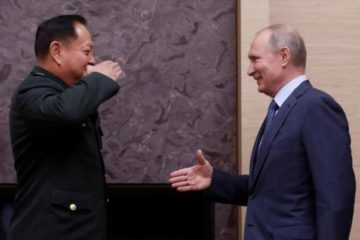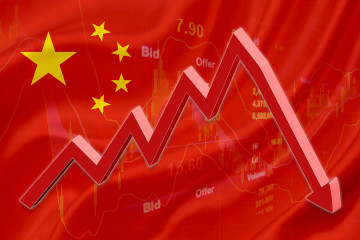Emerging Stocks, Currencies Gain as Economic Confidence Returns

©2015 Bloomberg News
NX9F936K50XZ
(Bloomberg) — Emerging-market assets rose for a third day as increasing confidence that the global economy is stabilizing outweighed concern that a pending increase in U.S. borrowing costs will lure money away from developing nations.
Colombia’s peso led gains in currencies, strengthening 3.5 percent against the dollar after the central bank increased interest rates by more than analysts had forecast. The real rose to a three-week high amid speculation that an increase in mergers and acquisitions signals investors see value in Brazil. Turkey’s lira declined as investors sought to benefit from the biggest jump since 2008 after AK Party’s weekend election win. The MSCI Emerging Markets Index added 1.2 percent to 860.77.
Developing-nation currencies and stocks are recovering from a rout spurred by Federal Reserve officials’ comments that they’ll consider raising borrowing costs in December as investors bet that further increases will be gradual and central banks around the world will remain supportive of economic recovery. Data on Monday signaled manufacturing activity continues to expand in the U.S. and Europe and is stabilizing in China.
“Investors are getting tired of this interest-rate theme and we have already seen huge outflows from emerging markets pricing in the hike,” Hertta Alava, who helps oversee about $395 million as the head of emerging markets at FIM Asset Management Ltd. in Helsinki, said by e-mail. “Recently, we have got some decent macro numbers from the U.S., Europe and China. So there is some increased confidence that the world economy is relatively stable.” Alava favors Indian stocks over Brazilian equities.
Markets Rebound
A Bloomberg measure of 20 developing-nation currencies gained 0.5 percent, extending its advance to 3.3 percent from a record low in September. The MSCI stock gauge has risen 12 percent from this year’s low in August. The index trades at 11.4 times the projected earnings of its members. That’s 29 percent cheaper than the valuation for advanced-nation stocks.
Colombia’s peso gained for a fifth day, adding the most since December 2010. The central bank raised the benchmark rate by half a percentage point on Oct. 30 to 5.25 percent, surprising all but one of 36 analysts surveyed by Bloomberg, most of whom were expecting just a quarter-percentage point increase.
Brazil, China
The real strengthened to a three-week high, appreciating 2.3 percent to 3.7691 per dollar. The Ibovespa jumped 4.8 percent to 48,053.67, the most in almost a year and the world’s biggest gain.
Financial stocks advanced after Itau Unibanco SA, Latin America’s largest bank by market value, led the Brazilian benchmark higher, rallying 6.4 percent after posting profit that beat analysts’ estimates. The Ibovespa has declined 17 percent from this year’s peak in May amid the country’s economic recession, a sweeping corruption scandal and a political crisis.
The Hang Seng China Enterprises Index advanced 0.4 percent, the first gain in six days. The measure has rebounded 13 percent from a September low as China’s government introduced more measures to boost growth amid the slowest economic expansion in a quarter of a century.
South Korea’s Kospi index advanced 0.7 percent to the highest close since July 23. Hyundai Motor Co. gained 2.5 percent after saying October car sales rose 6.3 percent. Kia Motors Corp. jumped 4.7 percent after posting a 16 percent sales increase.
Ruble, Lira
The Jakarta Composite Index climbed 1.5 percent. Indonesia’s year-end inflation may come in at 3.2 percent, lower than the central bank’s estimate and conducive for a rate cut, Maybank Kim Eng Securities wrote in a research report. The rupiah added to its world-beating surge in October after the biggest weekly inflows into the nation’s local-currency sovereign bonds since early August. The currency advanced 0.8 percent, the most since Oct. 28, according to prices from local banks.
The ruble strengthened 1.7 percent, following oil higher, while a hiatus in volatility put into focus the question of whether the central bank will restart foreign currency purchases to build up reserves. The Micex Index jumped 1.6 percent.
The lira weakened 0.2 percent. Turkey’s AK Party, which won a parliamentary majority in Sunday elections, plans to remake economic institutions, pro-government Sabah newspaper reported. The proposal includes changing the structure of the central bank and its monetary policy committee, the paper said. The currency jumped 3.2 percent on Monday after the decisive vote.
The premium investors demand to own emerging-market debt over U.S. Treasuries narrowed six basis points to 381 basis points, according to JPMorgan Chase & Co. indexes.
–With assistance from Taylor Hall in New York.
To contact the reporter on this story: Maria Levitov in London at mlevitov@bloomberg.net To contact the editors responsible for this story: Daliah Merzaban at dmerzaban@bloomberg.net Srinivasan Sivabalan, Richard Richtmyer







No Comment